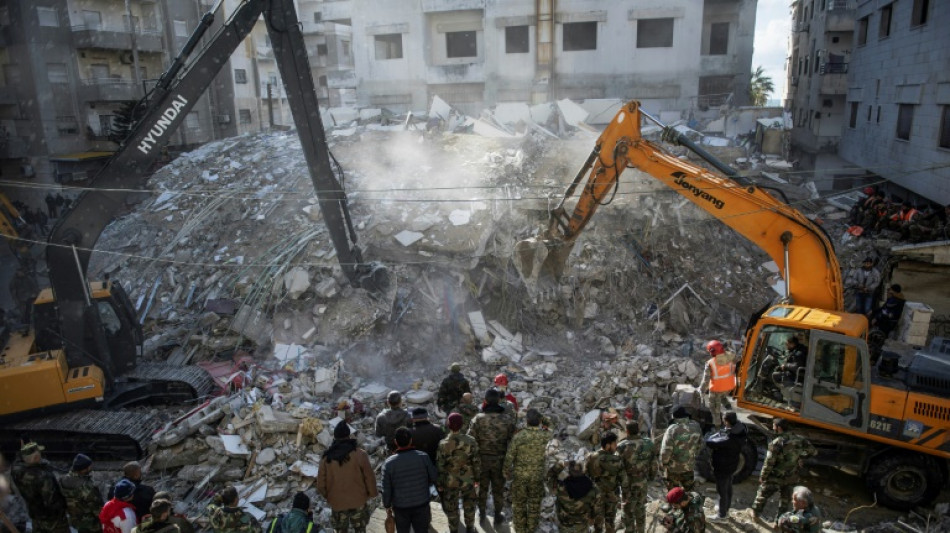
-
 Arsenal hit back to rescue valuable draw at Liverpool
Arsenal hit back to rescue valuable draw at Liverpool
-
Pakistan's Kashmiris return to homes, but keep bunkers stocked
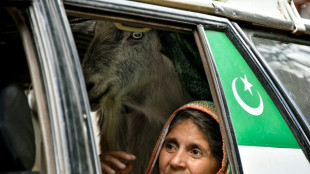
-
 Postecoglou hopeful over Kulusevski injury ahead of Spurs' Europa final
Postecoglou hopeful over Kulusevski injury ahead of Spurs' Europa final
-
Washington hails 'substantive progress' after trade talks with China
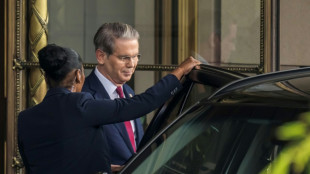
-
 Barca edge Real Madrid in thriller to move to brink of Liga title
Barca edge Real Madrid in thriller to move to brink of Liga title
-
Albanians vote in election seen as key test of EU path

-
 Forest owner Marinakis confronts Nuno after draw deals Champions League blow
Forest owner Marinakis confronts Nuno after draw deals Champions League blow
-
Dortmund thump Leverkusen to spoil Alonso's home farewell

-
 Pedersen sprints back into Giro pink after mountain goat incident
Pedersen sprints back into Giro pink after mountain goat incident
-
Zverev cruises into Rome last 16, Sabalenka battles past Kenin
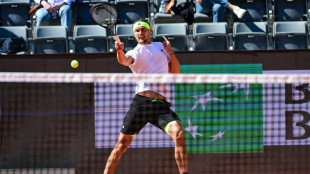
-
 Newcastle win top-five showdown with Chelsea, Forest held to damaging draw
Newcastle win top-five showdown with Chelsea, Forest held to damaging draw
-
Iran says nuclear talks 'difficult but useful', US 'encouraged'
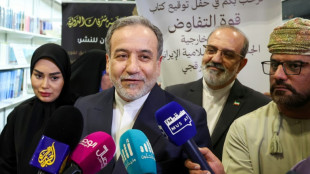
-
 Zarco first home winner of French MotoGP since 1954
Zarco first home winner of French MotoGP since 1954
-
Taliban govt suspends chess in Afghanistan over gambling
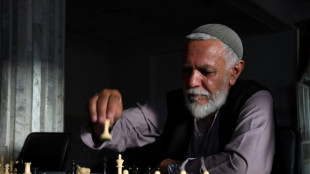
-
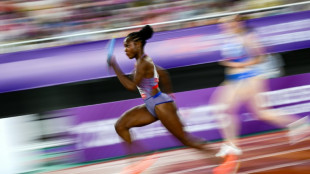 Eduan, Simbine shine at world relays
Eduan, Simbine shine at world relays
-
Washington 'optimistic' amid trade talks with China
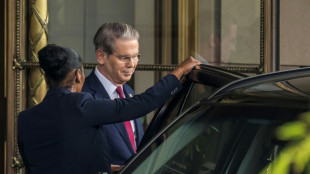
-
 Tonali sinks 10-man Chelsea as Newcastle win top five showdown
Tonali sinks 10-man Chelsea as Newcastle win top five showdown
-
Ukraine says will meet Russia for talks if it agrees to ceasefire
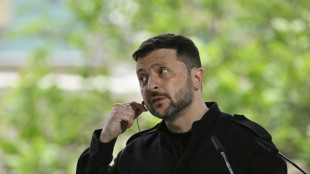
-
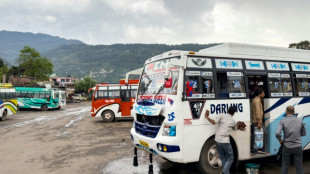 India's worst-hit border town sees people return after ceasefire
India's worst-hit border town sees people return after ceasefire
-
Pope Leo XIV warns of spectre of global war in first Sunday address
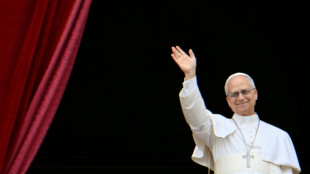
-
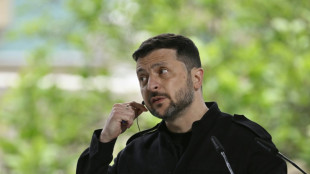 Ukraine says will meet Russia for talks if Moscow agrees to ceasefire
Ukraine says will meet Russia for talks if Moscow agrees to ceasefire
-
Sabalenka battles past Kenin and into Rome last 16

-
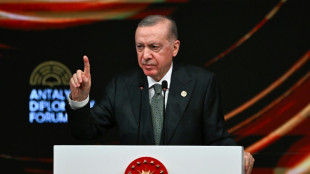 Erdogan says efforts to end Ukraine war at 'turning point'
Erdogan says efforts to end Ukraine war at 'turning point'
-
Pope Leo XIV calls for peace at St Peter's prayer
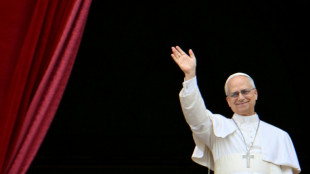
-
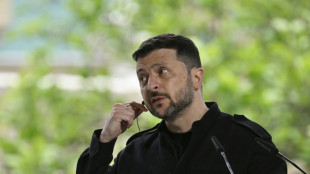 Ukraine will meet Russia for talks if Moscow agrees to ceasefire
Ukraine will meet Russia for talks if Moscow agrees to ceasefire
-
India, Pakistan ceasefire holds after early violations
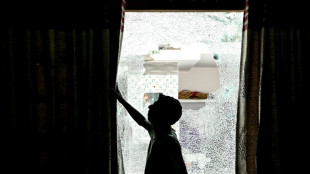
-
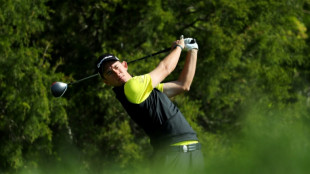 Herbert seals Asian Tour win with final-hole heroics
Herbert seals Asian Tour win with final-hole heroics
-
Catholics gather to catch glimpse of Pope Leo XIV at St Peter's prayer
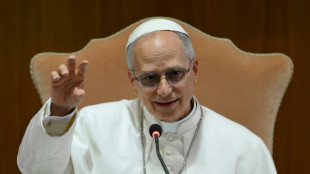
-
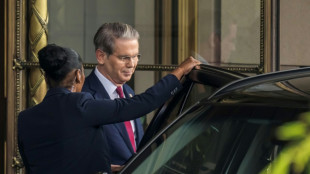 US-China talks resume as Trump hails 'total reset' in trade relations
US-China talks resume as Trump hails 'total reset' in trade relations
-
Ukraine ready for Russia truce talks, Zelensky says
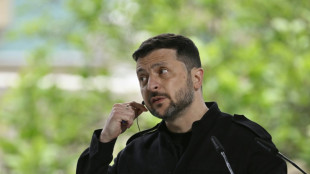
-
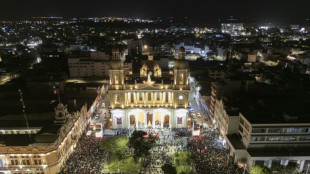 Jubilant Peruvians celebrate new pope at mass in adoptive city
Jubilant Peruvians celebrate new pope at mass in adoptive city
-
Scottish refinery closure spells trouble for green transition
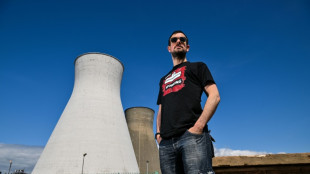
-
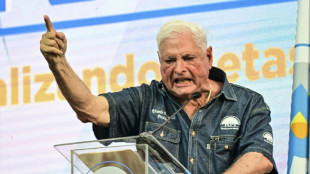 Convicted ex-Panama president Martinelli granted asylum in Colombia
Convicted ex-Panama president Martinelli granted asylum in Colombia
-
IPL chiefs in talks about restart following ceasefire: reports
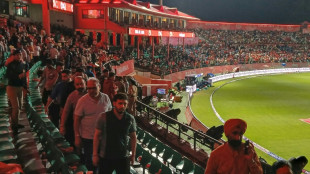
-
 Navarrete beats Suarez on technical decision to keep title
Navarrete beats Suarez on technical decision to keep title
-
Scans clear Wallabies fly-half Lolesio of serious back injury

-
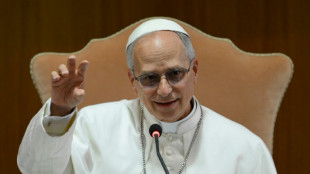 Leo XIV to address faithful with St Peter's prayer
Leo XIV to address faithful with St Peter's prayer
-
T-Wolves grab 2-1 NBA playoff series lead as Celtics get key win

-
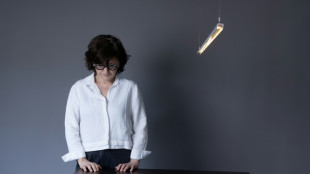 Gaza war casts shadow over Cannes film festival
Gaza war casts shadow over Cannes film festival
-
'Treasure hunt': tourists boost sales at Japan's Don Quijote stores
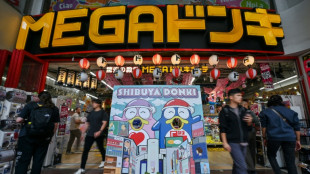
-
 Cannes Festival: the films in competition
Cannes Festival: the films in competition
-
Cannes film festival: what to look out for

-
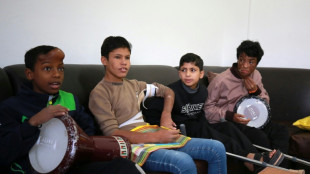 Jordan hospital treats war casualties from across Middle East
Jordan hospital treats war casualties from across Middle East
-
As Trump family's Gulf empire grows, rulers seek influence, arms, tech
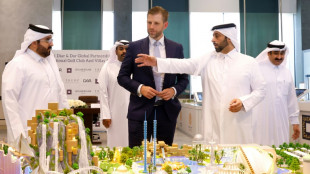
-
 S. Korea conservatives choose presidential candidate after last-minute chaos
S. Korea conservatives choose presidential candidate after last-minute chaos
-
Trump hails 'total reset' in US-China trade relations as talks continue
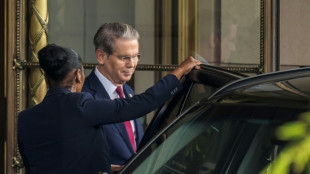
-
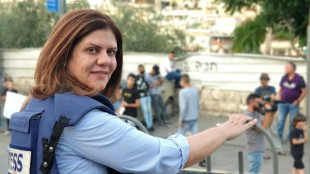 Film claims to name killer of slain journalist Shireen Abu Akleh
Film claims to name killer of slain journalist Shireen Abu Akleh
-
Under Trump pressure, Columbia University ends semester in turmoil
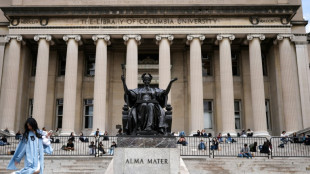
-
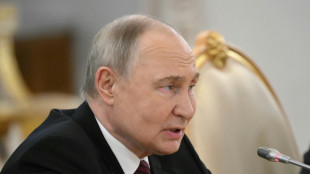 Putin proposes direct Ukraine talks but quiet on 30-day ceasefire
Putin proposes direct Ukraine talks but quiet on 30-day ceasefire
-
Trump hails US-China trade 'reset' after first day of talks
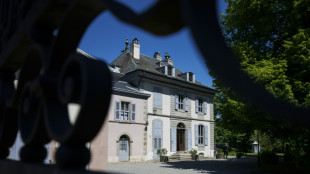

Quake-hit Syria city buries its dead on farmland
In Syria's coastal city of Jableh, Mohammed Daya has turned his farmland into a makeshift graveyard, with cemeteries overwhelmed as more bodies are pulled from the rubble after Monday's devastating earthquake.
The 7.8-magnitude quake struck near the Turkish city of Gaziantep, about 40 kilometres (25 miles) from the Syrian border, killing more than 22,000 people, including at least 3,377 in the war-torn Arab country.
"We could not help the living, but at least we should honour the dead," Daya told AFP from his farm-turned-cemetery, where dozens of people were hard at work digging graves in fields where tomatoes and peppers once grew.
The 47-year-old said he gave away most of his farmland, which he had planned to sell later for construction, so the dead could be laid to rest.
Sixteen bodies were already buried in the field and he said he was ready to give away more land if needed.
"I never expected this land would one day become a cemetery," he said, his eyes puffy and red from crying.
Relatives of those who lost their lives wrote the names of the dead by hand on nearby cement blocks used as makeshift tombstones.
Obituaries were plastered everywhere on the walls of the city.
- 'Death has come again' -
Jableh is located in mostly government-controlled Latakia, a province that is one of the war-ravaged country's worst impacted by the tremor.
The earthquake killed more than 500 people and destroyed 100 buildings in the province alone, authorities said.
But there is little hope that rescuers, who have already scoured 60 percent of affected sites in the province, will find anyone alive under the flattened buildings.
Experts say more than 90 percent of survivors are rescued within the first three days of emergency operations after an earthquake, on average.
Near the makeshift cemetery, many have been sleeping outside in the cold and toiling alongside rescuers with their bare hands, pots and pans to sift through the debris in hopes of finding their loved ones -- dead or alive.
In the neighbourhood of Rihawi, dozens of families anxiously waited for news of relatives still trapped under a crumbled structure, as bulldozers lifted concrete slabs.
Standing in the middle of the destruction, Adam Shaabo waited for a family member to be pulled out.
"I can't forget their faces," he said, recalling their lifeless, crushed bodies.
Jableh has been relatively spared the worst of Syria's almost 12-year civil war, but it has witnessed violent attacks and its residents have been killed in action, mostly alongside government forces.
"We thought we had bid farewell to big funerals," he said, "but death has come to Jableh again."
- 'Dying breath' -
Syrian first responders, as well as rescuers from Lebanon and Russia, have been rummaging in the rubble in a losing race against time.
Moscow is one of Damascus' main allies, and has two military bases in Syria: the airport in Hmeimim five kilometres (three miles) from Jableh; and the naval port of Tartus, roughly 60 kilometres to the south.
Lebanese rescuers pulled out a corpse from under slabs of concrete as relatives dashed to them, crying out as they recognised a deceased loved one.
"We are using primitive methods; we yell out for any survivors and wait for a response," said one of the Lebanese, Ali Safieddine.
"The building crumbled like a biscuit."
In one neighbourhood, residents took shifts guarding abandoned, damaged buildings, while others were busy distributing bread to shelters.
Nearby, rescuer Jalal Daoud dug in the wreckage hoping to catch survivors in their "very last hours", he told AFP.
"We are trying to work quickly... to catch the living before their last dying breath."
L.Mason--AMWN